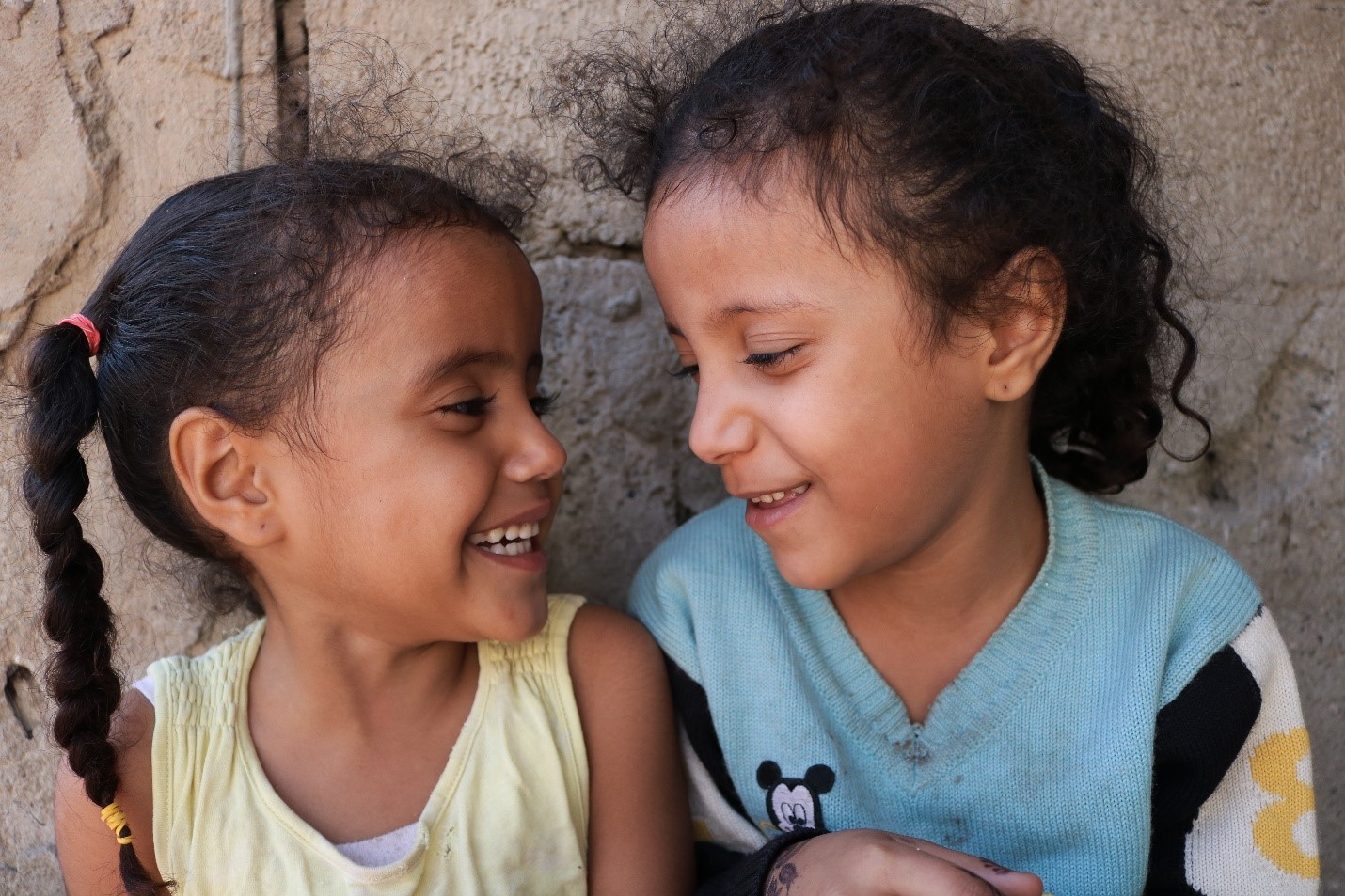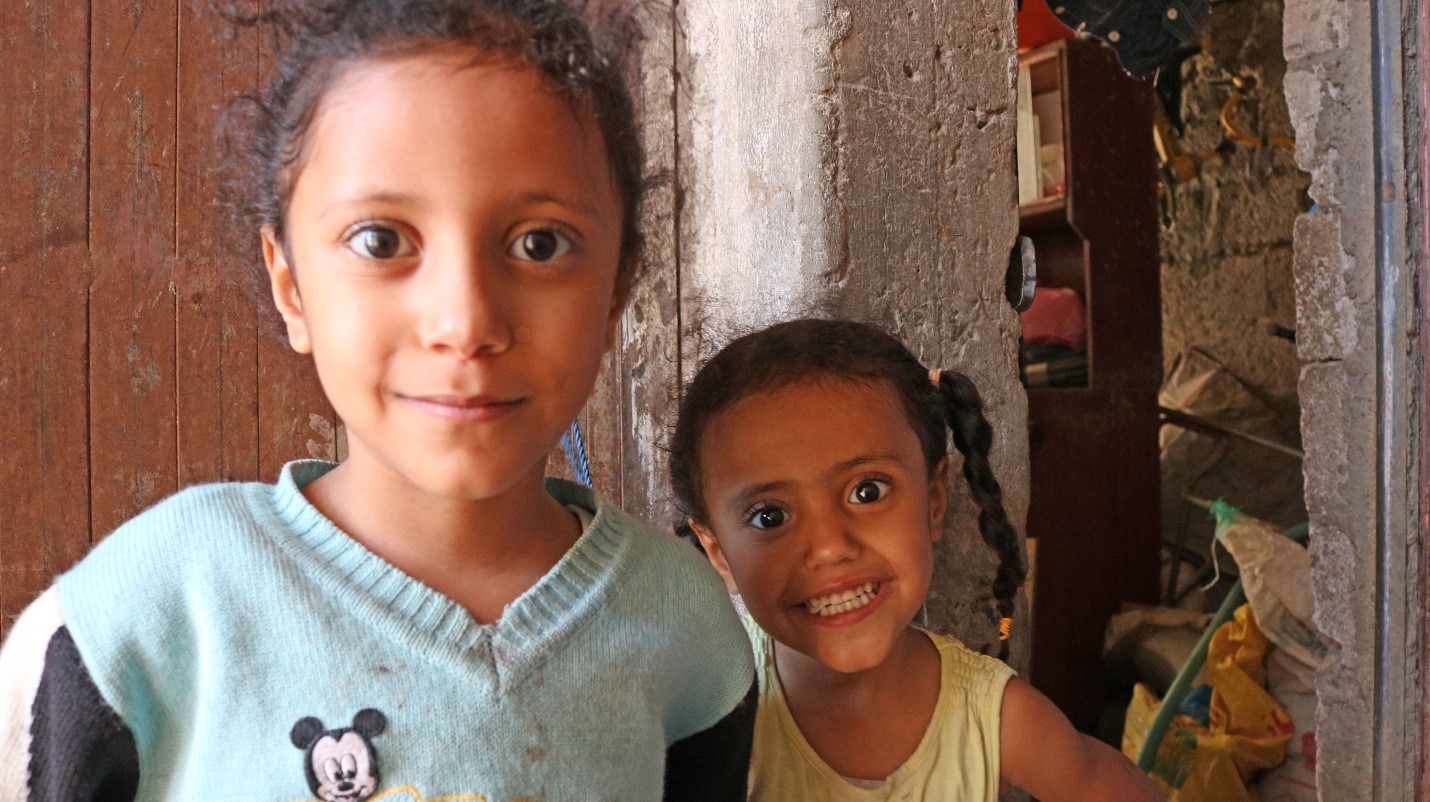Growing up in one of the most difficult places on earth to be a child has been the fate of a whole generation of Yemeni children. The six-year-long conflict in Yemen has taken a devastating toll on children’s growth and wellbeing. Displacement, as well as the lack of access to education and health, often threatens their safety.
In 2020, the situation for children in Yemen was further devastated by the impact of the COVID-19 pandemic and funding cuts. Even before the pandemic closures, nearly one-third of all school-age children were already out of school.
Near their small rented house in Wadi Alsalami district of Taizz, young Wafa and Rahaf were happily chasing each other in a game of ‘catch me’. Like a ray of sunshine, the two sisters were full of hope and energy, but two months ago, the case was different.
Wafa and Rahaf were very sick from playing in front of their house. Sadly, they contracted dengue fever and spent some time in the hospital until they recovered. “Our area suffered from a lack of sewage systems meaning that sewage water filled the street,” says Balqees – Wafa’s and Rahaf’s mother.

